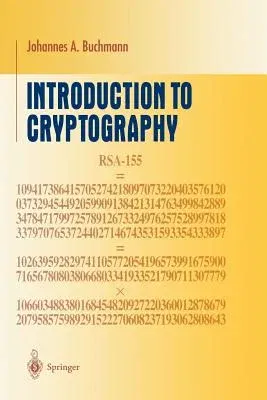Johannes Buchmann
(Author)Introduction to Cryptography (Softcover Reprint of the Original 1st 2001)Paperback - Softcover Reprint of the Original 1st 2001, 21 January 2012

Qty
1
Turbo
Ships in 2 - 3 days
In Stock
Free Delivery
Cash on Delivery
15 Days
Free Returns
Secure Checkout
Part of Series
Undergraduate Texts in Mathematics
Print Length
281 pages
Language
English
Publisher
Springer
Date Published
21 Jan 2012
ISBN-10
1468404989
ISBN-13
9781468404982
Description
Product Details
Author:
Book Edition:
Softcover Reprint of the Original 1st 2001
Book Format:
Paperback
Country of Origin:
NL
Date Published:
21 January 2012
Dimensions:
23.39 x
15.6 x
1.6 cm
ISBN-10:
1468404989
ISBN-13:
9781468404982
Language:
English
Location:
New York, NY
Pages:
281
Publisher:
Weight:
421.84 gm

